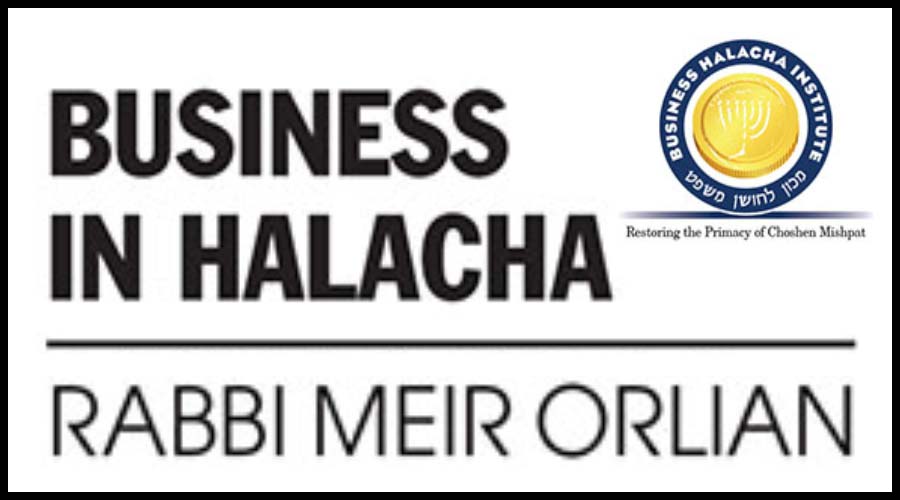Mrs. Alter ran a business coordinating home visits for elderly and disabled people, paid for by Medicare. She processed the billing and payments and kept a percentage.
One of her clients was a counselor, Mrs. Stern. Before Sukkos, Mrs. Alter wished her a happy holiday. “You, too,” replied Mrs. Stern. “A religious neighbor invited me for lunch on Monday, but I’ll be working. I scheduled one of my appointments for then.”
‘);
_avp.push({ tagid: article_top_ad_tagid, alias: ‘/’, type: ‘banner’, zid: ThisAdID, pid: 16, onscroll: 0 });
“You know, holidays are like Shabbos,” Mrs. Alter said. “We don’t work on holidays. The office will be closed.”
“I don’t need the office,” replied Mrs. Stern. “I’ll make my visit and file the papers afterwards.”
“Mrs. Stern plans to work on Yom Tov,” Mrs. Alter said to her husband afterwards. “I tried to dissuade her, but she didn’t pick up on it. Are we allowed to process the billing and keep our percentage?”
Her husband called Rabbi Dayan, who replied as follows: “Chazal prohibited receiving payment for work on Shabbos and Yom Tov even if the work itself does not entail prohibited activities, like being a babysitter, waiter, or counselor. It’s called s’char Shabbos. [Orach Chayim 306:4]
“The prohibition rests primarily on the employee, not the employer. Nonetheless, a Jewish employer violates lifnei iver when paying s’char Shabbos to a Jewish employee. Processing the billing would presumably also violate lifnei iver. [Mishna Berurah 306:21]
“Are there any halachic leniencies?” asked Mr. Alter.
“Chazal permitted s’char Shabbos when included in a broader payment (b’havla’ah), such as a monthly salary,” replied Rabbi Dayan. “Thus, if the worker has a steady job and receives a monthly salary, s’char Shabbos does not apply. However, if the worker files a separate bill for each visit, it’s questionable whether it can be considered b’havla’ah, even though the salary covers the entire month. [Mishnah Berurah 306:19-20; Shemiras Shabbos K’hilchasa 28:64-65]
“In addition, visiting the elderly or disabled can be considered a mitzvah, like providing medical care, which many poskim allow taking payment for on Shabbos or Yom Tov.” [Orach Chayim 585:5]
Thus, it seems permissible for the business to process the billing for the non-observant worker in conjunction with certain leniencies regarding lifnei iver [beyond the scope of this article].”
“What about our percentage?” asked Mr. Alter.
“According to most authorities, one may not benefit from prohibited s’char Shabbos,” replied Rabbi Dayan. “However, if one mistakenly took s’char Shabbos, it’s okay post facto since the prohibition is only rabbinic. [Orach Chayim 245:6; Bi’ur Halacha 318:1]
“There are possible leniencies in this case relating to b’havla’ah and mitzvah, as we mentioned. Moreover, the business receives its percentage from the paperwork and administrative responsibilities it performs during the week, so technically it seems permissible to keep your percentage. Nonetheless, since there is some concern of lifnei iver, it would be meritorious to give the percentage from Mrs. Stern’s work on Yom Tov to tzedakah. [see Aruch Hashulchan 245:18]
<!–
Publisher #16: JewishPress.com
Zone #113: Comment Banner / (02) / News
Size #15: Banner 468×60 (Comments and Mobile) [468×60]
–> ‘);
_avp.push({ tagid: article_top_ad_tagid, alias: ‘/’, type: ‘banner’, zid: ThisAdID, pid: 16, onscroll: 25 });




